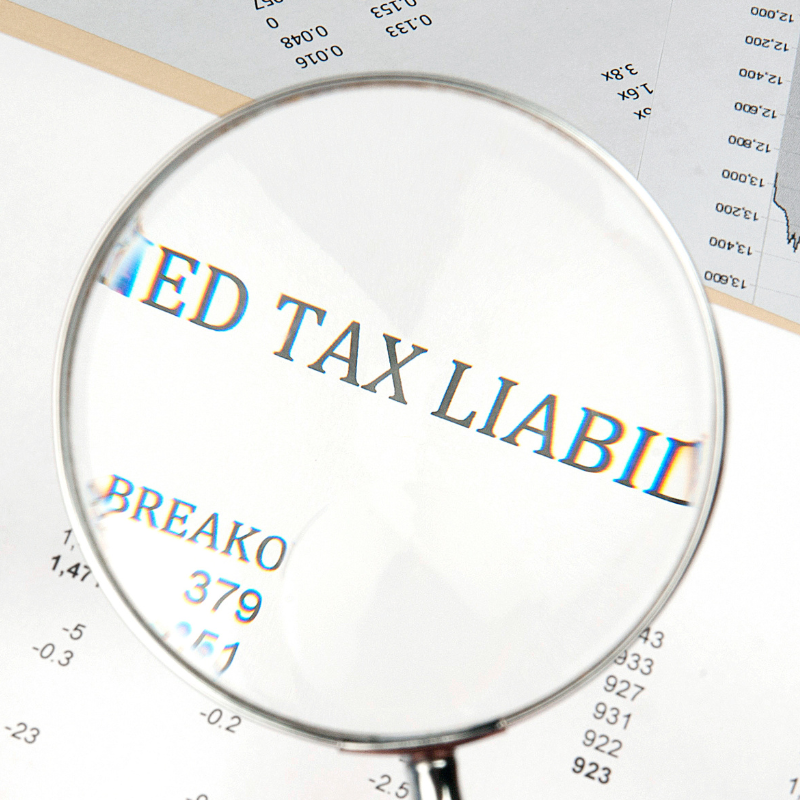Most state income tax systems fall into two categories: progressive taxes or flat taxes. Massachusetts touts the advantages of their “flat tax” system. Everyone pays the same percentage of their income. It is equitable, doesn’t punish high-income earners, and everyone is left with the same percentage of after-tax earnings to spend, right?
Sort of…Massachusetts’ “flat tax” system applies a 5% personal income tax rate to most income, unless you recognize short-term capital gains which are taxed at 12%. Beginning in 2023, Massachusetts plans to roll out an additional “millionaires’ tax” of 4% on earnings over $1 million dollars. Not exactly the best example of a “flat tax” system, right? But before we worry about the 2023 tax changes, let’s look at some of the major changes impacting your 2022 Massachusetts income tax return.
Prior to 2022, Massachusetts determined “gross income” by adopting the Internal Revenue Code (“IRC”), as it existed on January 1, 2005 (as amended). The IRC has undergone significant changes since 2005, creating major differences between federal and Massachusetts taxable income. As provided under the Massachusetts Fiscal Year 2023 Budget, beginning January 1, 2022, Massachusetts gross income will generally conform to the IRC, as amended on January 1, 2022.
Good News or Bad News?
What does this mean for Massachusetts Taxpayers? Certain tax provisions added to the IRC after 2005 that were not previously applicable in Massachusetts now become part of the Massachusetts tax code. Let’s find out if that’s good or bad news for you, the taxpayer.
- Qualified Business Income Deduction – Bad News: The FY 2023 Budget specifically decoupled from the “Qualified Business Income” deduction, a (generally) 20% reduction of income available to the owners of pass-through businesses, under IRC Section 199A; Massachusetts did not conform to this federal deduction for taxable years beginning before January 1, 2022. Because the FY23 Budget specifically decoupled from IRC Section 199A,this popular federal deduction will not be available to Massachusetts owners of pass-through entities.
- Excess Business Losses – Bad News: The FY 2023 Budget conformed to the IRC Section 461(l) - Limitation on excess business losses of noncorporate taxpayers. Excess business losses are the amount by which an individual taxpayer’s total business losses or deductions exceed their total income or gain from the business. The ability to deduct excess business losses is limited to the annual threshold amounts of $270,000 for single filers and $540,000 for married filing jointly. Starting 1/1/2022, Massachusetts taxpayers' ability to deduct business losses will be similarly limited.
- Qualified Small Business Stock – Good News: Under IRC Sec 1202, 100% of gains from the sale of Qualified Small Business Stock qualify for exclusion if the stock was acquired after September 27, 2010. Prior to 2022, Massachusetts allowed a 50% exclusion on such gains, and the residual gains were taxed at a reduced rate of 3%. After the IRC conformity update, 100% of gains from the sale of Qualified Small Business Stock acquired after September 27, 2010, qualify for exclusion from Massachusetts income tax.
- Qualified Opportunity Zones – Good News: Prior to 2022, any gain from the sale or exchange of property deferred under Subchapter Z of the IRC was recognized in the year of sale or exchange for Massachusetts personal income tax purposes. The favorable basis adjustment rules under the IRC (based on the holding period of the investment) were not applicable in Massachusetts in calculating the gain that may be recognized upon the future sale of the qualified investment. Starting in 2022, the Massachusetts code conforms to the IRC, and individuals who elect to defer such gain under Subchapter Z of the IRC will be able to defer such gain for Massachusetts purposes.
- Student Loan Forgiveness – Good News: The exclusion from Massachusetts gross income is substantially similar to the IRC Section 108(f)(5). The federal exclusion is available for student loans forgiven on or after January 1, 2021, and ending on or before December 31, 2025. However, the Massachusetts deduction does not have a sunset date. Therefore, starting January 1, 2022, forgiven student loans will be excluded from federal and Massachusetts gross income. Additionally, employer payments of employees’ qualified education loan principal or interest will be excluded from Massachusetts gross income.
- Repeal of inclusion of alimony received as gross income and repeal of deduction for alimony payments – Good news for receivers, bad news for payers: Under IRC Sec. 61(a) for divorces or separation agreements executed after December 31, 2018, alimony payments received from a former spouse are not included in the recipient's income, and the payor of the alimony does not get a deduction. Prior to 2022, Massachusetts followed the 2005 Internal Revenue Code, under which the recipient includes the alimony in taxable income, and the payor gets a deduction for the alimony payment. After the IRC conformity update, Massachusetts now excludes alimony from the recipients’ gross income and no longer provides an alimony deduction for the payer.
Some good news, some bad news – it’s about even. We will have to wait for that “millionaires’ tax” to tip the scales next year!
Additionally, as a result of the Code conformity update, there are several other miscellaneous IRC provisions that now apply for Massachusetts personal income tax purposes. More information can be found in TIR 23.1.
Author: Sudha Vishwanath, CPA | [email protected]
Contact Us
If you have any questions, please contact a member of Withum’s State and Local Tax Services Team.



